Author
Subscribe to Newsletter
Related Posts
News Roundup: December 2025
View DetailsThe Future of Advice
View DetailsAbout The College Representation Podcasts
Where Military and Financial Services Meet
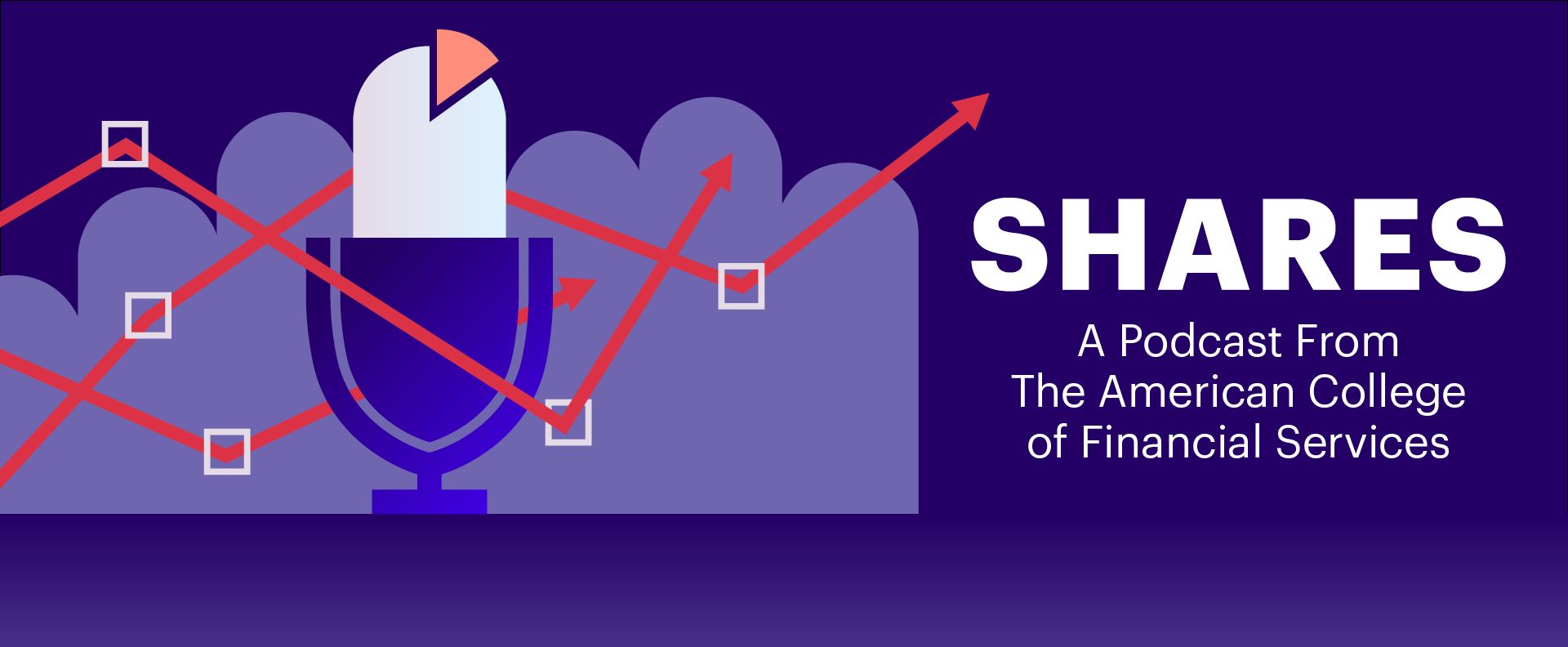
In this special episode of our Shares podcast recorded at The College’s 2024 Military Summit in Philadelphia, PA, host and military veteran Chet Bennets, CFP®, ChFC®, CLU®, RICP®, CLF® speaks with Lacey Langford, AFC®, founder of MILMO® and MilMoneyCon™ and an expert on navigating financial topics within the military community. They discuss the dual issues of how the financial services profession can better serve military members, veterans, and spouses in times of transition, as well as why those transitioning from military service into civilian careers are well-suited for positions in the industry.
Lacey Langford, AFC® is an Air Force veteran, military spouse, speaker, and financial coach who changes people’s lives from being fearful of money to having control and confidence with it. She is an Accredited Financial Counselor® (AFC®) with over 15 years of financial planning, counseling, and coaching experience, and is a member of the advisory board for the American College Center for Military and Veterans Affairs.
Langford is the founder of MILMO®, a community dedicated to helping the U.S. military with personal finance. She is the host of The MILMO® Show, a podcast that helps the military community make, save, and invest money wisely. She is also the founder and CEO of MilMoneyCon™️, a national conference for financial professionals united by military service.
Any views or opinions expressed in this podcast are the hosts’ and guests' own and do not necessarily represent those of The American College of Financial Services.
More From The College
Author
Subscribe to Newsletter
Related Posts
INDUSTRY EVENT: CFP Board Connections Conference
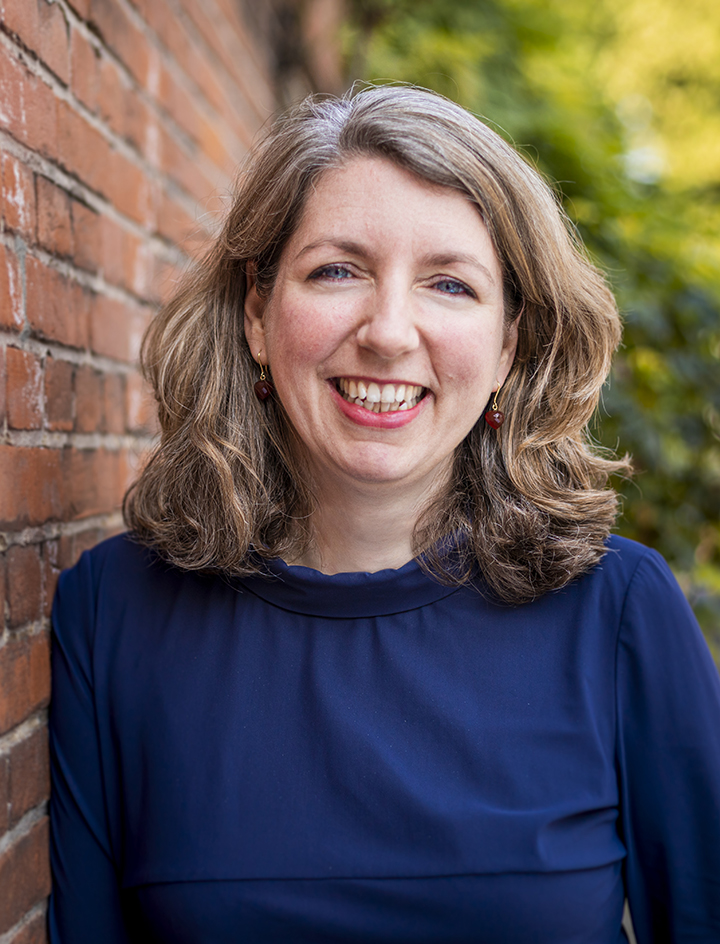
Wieke Scholten
PhD
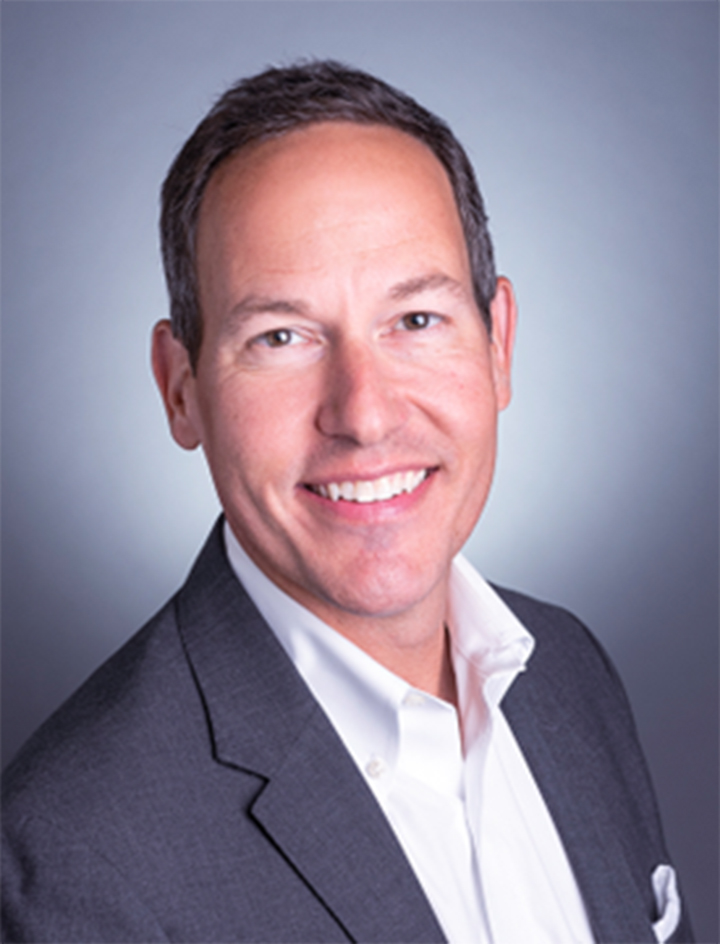
Todd Haugh
JD
Author
Subscribe to Newsletter
Related Posts
News Roundup: December 2025
View DetailsThe Future of Advice
View DetailsAbout The College Representation Insights
2024 Military Summit Highlights

Formerly known as the Clambake, the inaugural Military Summit melded several traditions of The College and its Center for Military and Veterans Affairs, including the Maury Stewart Lecture Series and the Leadership Symposium into a full day of programming spread between the W Hotel Philadelphia and the National Constitution Center. With over 140 financial professionals, service members, veterans, military spouses, and scholars in attendance, it was an inspiring, educational, and empowering event in the best tradition of the Center’s mission: providing educational support and career development opportunities to active duty, guard and reserve members, veterans, and their spouses.
An Examination of Knowledge and Leadership
The Military Summit kicked off with Center managing director Phil Easton, CMSgt, USAF (Ret.), welcoming the attendees and recognizing the solemn nature of the day chosen for the Summit with a moment of silence.
“This event is a celebration of the military community, but it’s also an occasion to remember, as we always do, those who have given their lives in service to their country, both in and out of uniform,” he said.
The annual Maury Stewart Lecture was up next, delivered by Michelle Caruso-Cabrera: a CNBC contributor, former chief international correspondent, and the network’s first Latina anchor. Caruso-Cabrera spoke about her experiences transitioning from a local journalism to the national stage when CNBC was still a young network and many of her colleagues felt she was making a career mistake. She went on, however, to become a major force that drove CNBC’s growth over 15 years, including traveling the world to interview important politicians and leaders – while also unwittingly becoming a leader in the newsroom herself.
“You know leadership when you see it, and you feel it when it’s missing,” she said. “I was surprised some of my colleagues looked at me as a leader because I’d never thought of myself as ‘the boss.’ But you don’t have to be the boss to be a leader. It’s all about little interactions, giving credit where it’s due, and thinking small, not just big.”
“You don’t have to be the boss to be a leader. It’s all about little interactions, giving credit where it’s due, and thinking small, not just big.”
–Michelle Caruso-Cabrera, veteran journalist
The session on leadership was followed by a talk from Jamie Hopkins, Esq., LLM, CFP®, ChFC®, CLU®, RICP® of Bryn Mawr Capital on adaptive retirement planning. Throughout the presentation, Hopkins used data from The College’s 2023 Retirement Income Literacy Study and other sources to drive home the point that retirement plans need to be flexible enough to account for variables in markets and individual lifestyles – there is no one-size-fits-all solution.
“Americans are being told as long as you put money into your 401(k) and save rather than spend, you’re going to be okay. That’s an oversimplification,” he said. “We also have to do a better job guiding clients through the decumulation stage: they’ve spent their entire lives saving, and if they’re afraid to see their balances go down during retirement, it kind of defeats the purpose.”
Technology and Opportunity in Financial Services
Further programming at the Military Summit included a panel discussion on the impact of artificial intelligence (AI) on financial services led by Kevin Crawford of Northwestern Mutual, including College faculty members Chet Bennetts, CFP®, ChFC®, CLU®, RICP®, CLF®, Azish Filabi, JD, MA, and Eric Ludwig, PhD, CFP®. The panelists took the opportunity to note the pitfalls and promise of AI technology; while it has the potential to enhance consumer education and build trust in the industry, when used for nefarious purposes it can also threaten to undermine privacy protections and perpetuate many of the discriminatory practices that have plagued the profession in the past.
“When AI is impacted by faulty data or human biases, it can continue those biases,” Filabi said. “What happens when an insurance company’s AI system uses private data to arbitrarily strip coverage from people it thinks don’t qualify for it? There’s a lot of good it can do, but only if it’s managed ethically and transparently.”
“When AI is impacted by faulty data or human biases, it can continue those biases. There’s a lot of good it can do, but only if it’s managed ethically and transparently.”
–Azish Filabi, JD, MA
Attendees got a sneak preview of the evening’s festivities with a fireside chat featuring College board of trustees member Lieutenant General Michelle Johnson, USAF (Ret.) and 2024 Soldier-Citizen Award recipient Major General Suzanne Vautrinot, USAF (Ret.). The two discussed General Vautrinot’s path through the service, from her early Air Force days to her introduction to cyber operations that eventually led her to help found the military’s Cyber Command in defense of sensitive information worldwide.
Among the many things that make an effective leader, General Vautrinot said, the most important is creating a culture of trust and respect where people feel their ideas are heard and their peers are accountable for their actions.
“In the Air Force, there’s a tradition we call the ‘hot wash,’” she said. “After any kind of operation, before any more discussion happens, the senior officer who was leading the operation will be the first to share their analysis of how it went and what they could have done better as a leader. How you recover from any kind of internal crisis is just as important as how you handle it.”
Finally, attendees were invited to network and socialize in a Military Resource Group Networking Lounge featuring informational booths from event sponsors on resources and partnerships available to military members, veterans, and spouses: these included USAA, NFP, Thrivent, Nationwide, and F&G.
A Patriotic Culmination
After the Military Summit concluded, attendees migrated over to Philadelphia’s National Constitution Center for the main event of the day: the Soldier-Citizen Award and Scholarship Fund Dinner, which raises money for the Center to provide scholarship opportunities to members of the military community who want to transition into the financial services profession and pursue a designation or certification with The College.
Easton read off an impressive list of achievements for the Center in 2024, including:
- 1,700 scholarships granted by the Center since 2014
- 49 master’s degrees and 245 designations awarded to military community members in 2024
- $460,000 in funds raised for 67 scholarships and Center initiatives in 2024
In addition, Easton noted 20% of The College’s military scholarships go to military spouses, and that 19 scholars were in attendance for the evening’s event. Attendees heard from three of them – Tia Nichole McMillen, Kyle Packard, CFP®, ChFC®, and Rachael Smith, MBA – who are now successful professionals in the financial services industry as they shared their stories and thanked the Center and The College for the opportunities they received.
“Successful transition is possible through this powerful, thriving, and supportive community. We here, all of us, have your six,” said McMillen in her remarks, referring to the military phrase meaning “to have someone’s back.”
“Successful transition is possible through this powerful, thriving, and supportive community. We here, all of us, have your six.”
–Tia Nichole McMillen, military scholar
The evening’s crowning moment, of course, was the official presentation of the Soldier-Citizen Award – a bust of Pericles, the Greek soldier, philosopher, and leader – to Major General Vautrinot. In her acceptance speech, she brought the conversation back to the solemn meaning of 9/11, as well as what it means to be a member of the military and serve others. Recalling an incident involving colliding planes years earlier during an air show at a German base, she remembered what happened after everyone present got over their shock.
“In the moments afterward, you didn’t see people running away from the wreck – they ran to help,” she said, asking all the military veterans, service members, and families present to stand and be recognized once again. “That is service: the scholars and signers of the Constitution framed around us remind us of that, and so does everyone in this room. Because of you, we will always move forward together. Thank you.”
Thanks to all who attended the 2024 Military Summit! Check out all of the event's highlights below:
More From The College
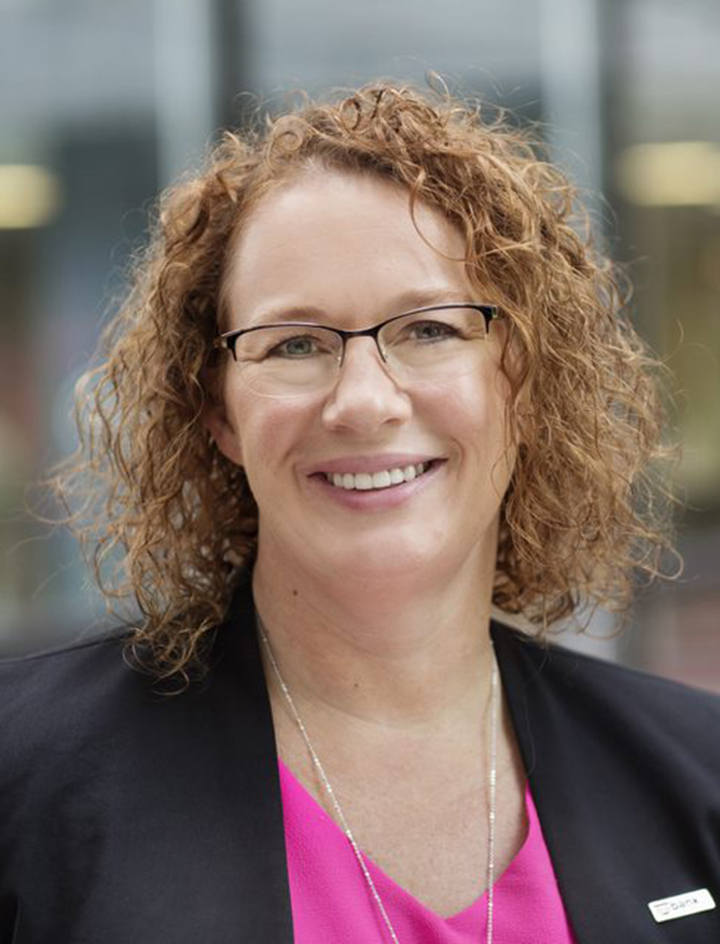
Katie Lawler
JD
Author
Subscribe to Newsletter
Related Posts
How Firms Can Strive for Ethical Excellence
Author
Subscribe to Newsletter
Related Posts
Planning Strategies to Mitigate the Impact of the 10 Year Rule
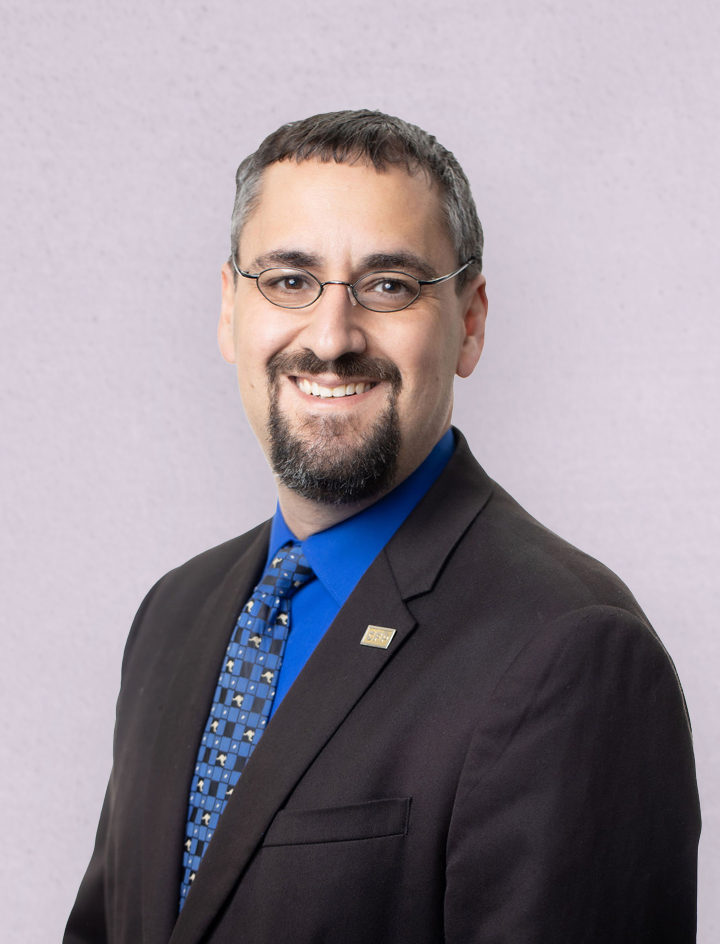
Michael Kitces
MSFS, MTAX, CFP®, CLU, ChFC, RHU, REBC, CASL
Author
Subscribe to Newsletter
Related Posts
News Roundup: December 2025
View DetailsThe Future of Advice
View DetailsAbout The College Representation From The President Podcasts
Expanding the Reach of Financial Services
In this special episode of our Shares podcast recorded at The College’s 2024 Conference of African American Financial Professionals (CAAFP), senior reporter for ThinkAdvisor John Manganaro speaks with President Nichols about his background at New York Life, his roles as the first Black president of The College and insurance commissioner for the state of Kentucky, and how his experiences working with diverse communities power his commitment to applied financial knowledge.
George Nichols III, CAP® currently serves as the 10th president and CEO in the storied history of The American College of Financial Services. Nichols joined The College after a 17-year stint at New York Life, where he held principal roles in sales, P&L, strategic initiatives, and public policy. In 2007, Nichols was named to the company's executive management committee. He also served as executive vice president in the Office of Governmental Affairs. Before joining New York Life, Nichols was the state of Kentucky's first Black insurance commissioner, leading regulation of the state's $10 billion insurance industry through his expertise in health insurance reform and financial services integration. He gained this knowledge through stints as the executive director of the Kentucky Health Policy Board, vice president of marketing for Athena of North America, executive director of product development with Blue Cross Blue Shield of Kentucky, CEO of Central State Hospital in Louisville, and executive assistant to the Commissioner of the Kentucky Department for Mental Health Services.
Nichols has been acclaimed for his efforts to drive transformative change in diversity, equity, and inclusion in the financial services profession and elsewhere. Savoy, a leading Black business and lifestyle magazine, named him among the "Most Influential Black Corporate Executives" twice: in 2012 and 2018; and among the “Most Influential Black Corporate Directors” in 2021. He was named to Forbes' inaugural 2021 edition of "The Culture 50 Champions." Nichols was also honored as one of "The Ten to Watch in 2021" by WealthManagement.com, and in 2022, he won a ThinkAdvisor LUMINARIES award for Executive Leadership, followed by InvestmentNews’ recognition in 2023 for the year’s See It, Be It role model. Additionally, Nichols is the inaugural recipient of the Alonzo Herndon Award by Business Insurance Magazine.
This episode is a collaboration with ThinkAdvisor.
Any views or opinions expressed in this podcast are the hosts’ and guests' own and do not necessarily represent those of The American College of Financial Services.